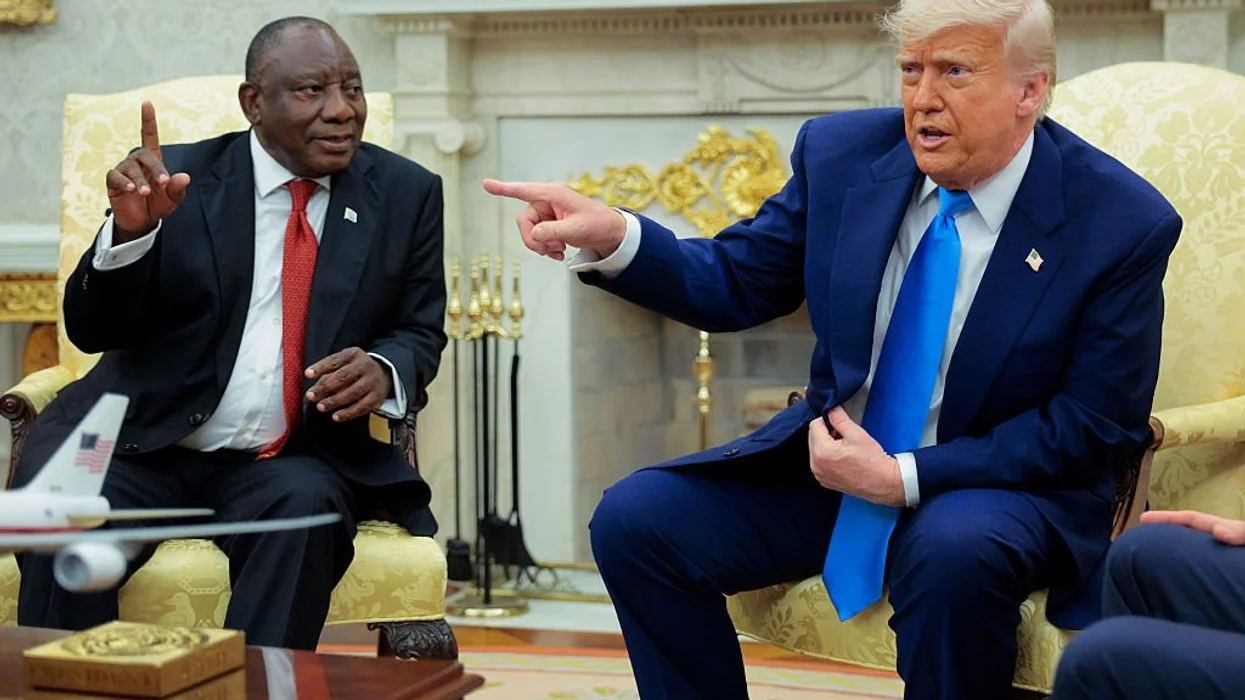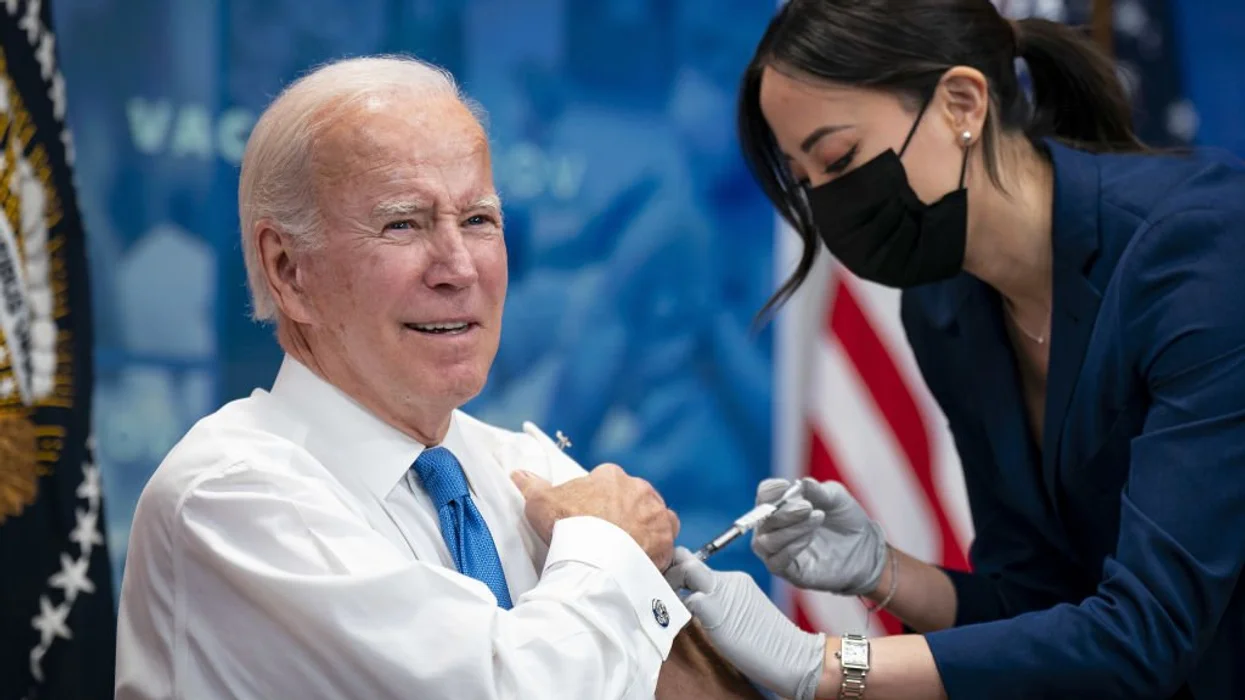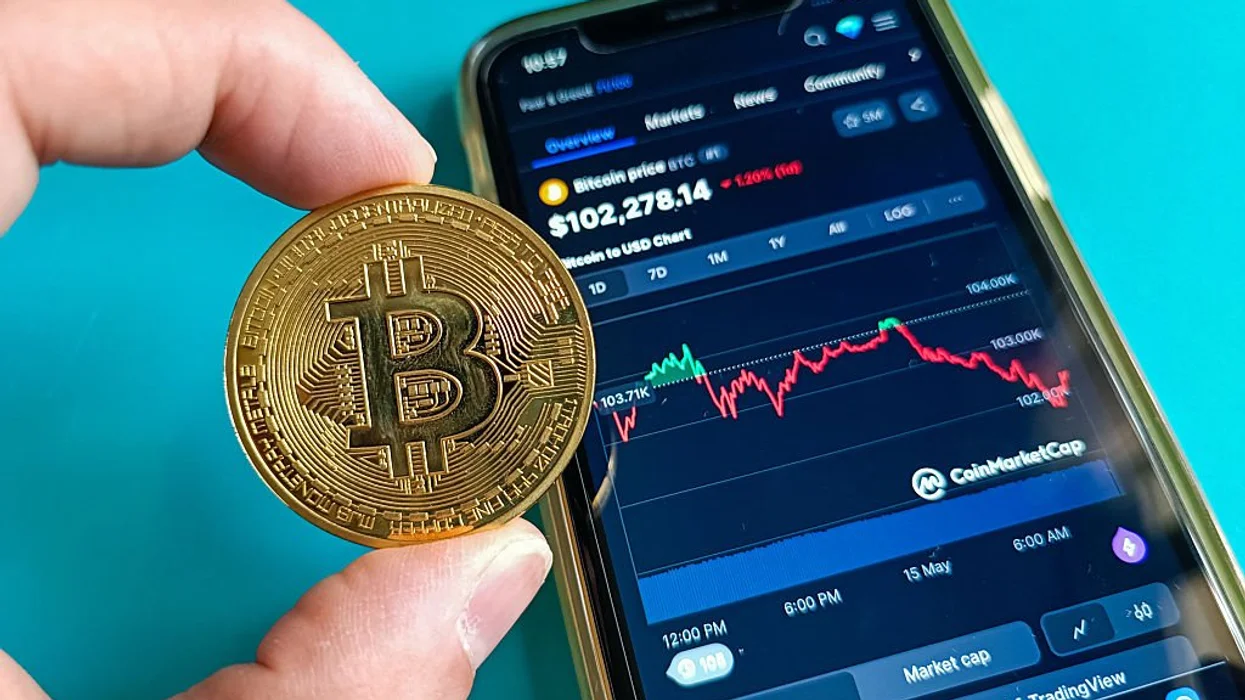© 2025 Blaze Media LLC. All rights reserved.
"Overcoming the sense of mistrust is probably the most important thing."
WASHINGTON (AP) — President Barack Obama is lavishing the grandest of White House welcomes on Chinese President Hu Jintao as the leaders of the world's two top powers try to find common ground on economic and security issues without alienating their domestic audiences.
With many Americans blaming China at least in part for the high U.S. unemployment rate, both presidents will be looking to build trust in a relationship grounded in mutual interest but troubled by intractable disputes.
It follows an up and down two years in which an assertive China initially cold-shouldered the U.S. on climate change, did little to reel in its unpredictable ally North Korea and responded limply to U.S. pleas to mitigate trade imbalances. For its part, the U.S. riled China by selling arms to Taiwan and inviting Tibet's spiritual leader, the Dalai Lama, to the White House.
Both sides are now setting a more positive tone.
Hu was welcomed on arrival Tuesday at Andrews Air Force Base by Vice President Joe Biden and then attended the first of two dinners Obama is hosting for him during his four-day U.S. stay. After talks Wednesday, the two leaders will hold a joint news conference — just four questions allowed. A full state dinner at the White House in the evening will be the ceremonial highlight.
While the agenda is packed with weighty issues, expectations remain modest.
"Overcoming the sense of mistrust is probably the most important thing," said Charles Freeman, a China expert at the Center for the Strategic and International Studies, a Washington-based think tank.
Hu's visit comes as the political trajectory has shifted for both nations.
China's success in weathering the global economic crisis coincided with an increasing confidence — critics would say brashness — on the world stage and worries among its neighbors in Asia over its growing military clout. Ultimately, that distrust has benefited the U.S., as nations such as Japan, South Korea and even Vietnam have looked to cement stronger ties with the U.S. as a regional power.
The U.S. economy has shown signs of recovery and Obama also has rebounded from his own political problems, notably the loss of one house of Congress to the Republican Party in November midterm elections. A nuclear arms reduction treaty he orchestrated with Russia was approved, and he has been lauded for a touchstone speech in the aftermath of the shooting massacre in Arizona. His previously stellar poll ratings have begun to recover after months in the doldrums.
That shift in fortunes is unlikely to translate into major concessions from Hu, but Obama may encounter a more amenable Chinese leader, who will be looking to burnish China's image in the U.S. and his own standing before he steps down in 2012.
Stiff and media-averse, Hu, 67, has been in power since 2002. While lacking the charisma of predecessors Jiang Zemin and Deng Xiaoping, he has presided over a remarkable rise in China's economy.
China now holds the world's largest foreign currency reserves at $2.85 trillion and a major chunk of U.S. government debt. Economists predict it could become the world's largest economy, eclipsing the U.S., within 20 years if not sooner.
But perceived diplomatic missteps and reports that Hu was unaware when he met this month with Defense Secretary Robert Gates about a test flight of China's new stealth fighter have raised questions over his control of the military.
The grandeur of a White House state dinner — the first for a Chinese leader in 12 years — could go some way toward reasserting Hu's stature in status-conscious China, where ceremony often has greater resonance than in the West.
But Hu, who will later lead a business delegation to Chicago, faces an uphill task in showing Americans that China's rise can benefit the U.S. — beyond plugging the federal deficit with low-interest loans and offering cheaper goods to consumers.
In a starkly partisan U.S. political atmosphere, slamming China for unfair trade practices is one thing both Republicans and Democrats can agree upon. This week, lawmakers from both parties announced plans for legislation to punish China for what they say is an undervalued currency that boosts its exports at the expense of U.S. manufacturers.
The Obama administration remains leery of steps that would infuriate China, favoring persuasion instead.
Last week, Treasury Secretary Timothy Geithner said that if Beijing wants more investment opportunities in the U.S. and access to high technology products, it also must allow a more level playing field for U.S. companies in China.
Washington will further seek common ground on North Korea amid recent signs that China has increased pressure on Pyongyang to moderate its behavior and return to negotiations after two military strikes against South Korea risked setting off a conflict on the Korean peninsula.
Shared interests, however, are unlikely to stretch to the arena of human rights — often a fly in the ointment of U.S.-China relations.
Obama's state dinner for Hu, only the third of his presidency, comes just a month after Liu Xiaobo, a Chinese lecturer jailed for calling for reform of the one-party system, was awarded the Nobel Peace Prize and barred from attending the ceremony.
Secretary of State Hillary Rodham Clinton last week appealed for China to tolerate dissent and assume the responsibilities of a world power in the 21st century. Her call for Liu's release is likely to fall on deaf ears.
Want to leave a tip?
We answer to you. Help keep our content free of advertisers and big tech censorship by leaving a tip today.
Want to join the conversation?
Already a subscriber?
more stories
Sign up for the Blaze newsletter
By signing up, you agree to our Privacy Policy and Terms of Use, and agree to receive content that may sometimes include advertisements. You may opt out at any time.
Related Content
© 2025 Blaze Media LLC. All rights reserved.
Get the stories that matter most delivered directly to your inbox.
By signing up, you agree to our Privacy Policy and Terms of Use, and agree to receive content that may sometimes include advertisements. You may opt out at any time.





